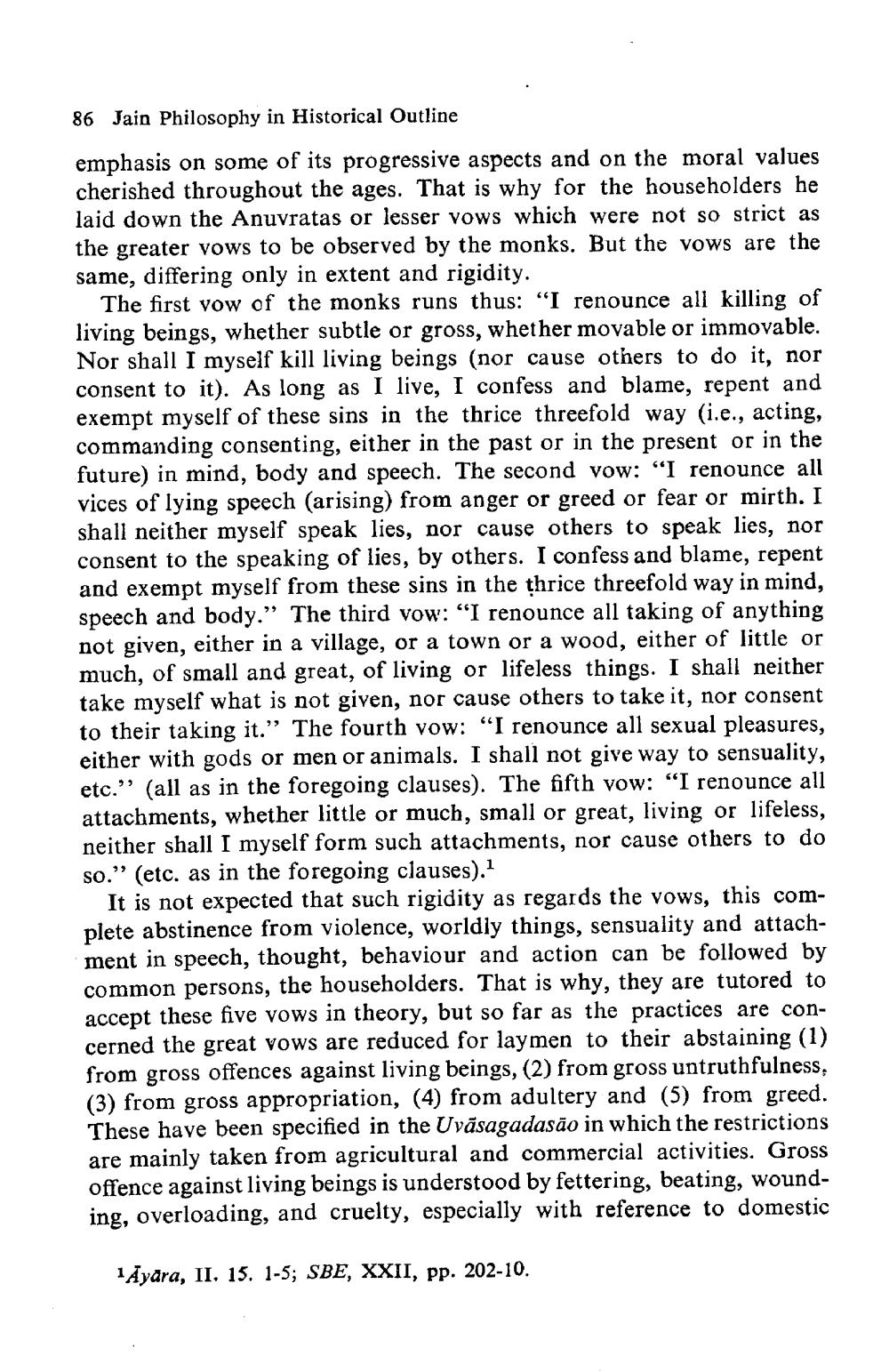________________
86
Jain Philosophy in Historical Outline
emphasis on some of its progressive aspects and on the moral values cherished throughout the ages. That is why for the householders he laid down the Anuvratas or lesser vows which were not so strict as the greater vows to be observed by the monks. But the vows are the same, differing only in extent and rigidity.
The first vow of the monks runs thus: “I renounce all killing of living beings, whether subtle or gross, whether movable or immovable. Nor shall I myself kill living beings (nor cause others to do it, nor consent to it). As long as I live, I confess and blame, repent and exempt myself of these sins in the thrice threefold way (i.e., acting, commanding consenting, either in the past or in the present or in the future) in mind, body and speech. The second vow: "I renounce all vices of lying speech (arising) from anger or greed or fear or mirth. I shall neither myself speak lies, nor cause others to speak lies, nor consent to the speaking of lies, by others. I confess and blame, repent and exempt myself from these sins in the thrice threefold way in mind, speech and body.” The third vow: “I renounce all taking of anything not given, either in a village, or a town or a wood, either of little or much, of small and great, of living or lifeless things. I shall neither take myself what is not given, nor cause others to take it, nor consent to their taking it.” The fourth vow: “I renounce all sexual pleasures, either with gods or men or animals. I shall not give way to sensuality, etc." (all as in the foregoing clauses). The fifth vow: “I renounce all attachments, whether little or much, small or great, living or lifeless, neither shall I myself form such attachments, nor cause others to do so." (etc. as in the foregoing clauses).
It is not expected that such rigidity as regards the vows, this complete abstinence from violence, worldly things, sensuality and attachment in speech, thought, behaviour and action can be followed by common persons, the householders. That is why, they are tutored to accept these five vows in theory, but so far as the practices are concerned the great vows are reduced for laymen to their abstaining (1) from gross offences against living beings, (2) from gross untruthfulness, (3) from gross appropriation, (4) from adultery and (5) from greed. These have been specified in the Uvāsagadasāo in which the restrictions are mainly taken from agricultural and commercial activities. Gross offence against living beings is understood by fettering, beating, wounding, overloading, and cruelty, especially with reference to domestic
1 Ayara, II. 15. 1-5; SBE, XXII, pp. 202-10.




